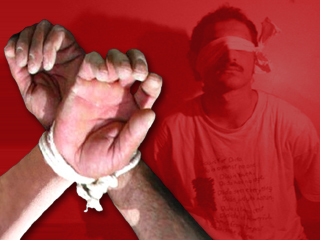Independent journalists and international human rights organizations are concerned about the future of free-press development in Kazakhstan
Published:
20 January 2004 y., Tuesday
Independent journalists and international human rights organizations are concerned about the future of free-press development in Kazakhstan, citing pending media legislation that would effectively give the government the ability to meddle in the operations of news-gathering organizations.
A clear majority in Kazakhstan's lower house of parliament, or Mazhilis, passed the media bill on December 25. Free-speech advocates believe the upper house, or Senate, will approve the bill as early as in mid-February. "We have no hope in the Senate, and [only] a very small hope that the president will reconsider and not sign this draft law," said Irina Petrushova, editor of the opposition Assandi Times newspaper.
Under the law, the Ministry of Information Affairs would have nearly unlimited powers to suspend a media organization's operations. The law places no restrictions on monopolies, and does little to guarantee journalists' rights. The law vaguely states that journalists have a right to gather information. At the same time, the legislation mandates that media organizations perform certain functions as defined by the Ministry of Information - a requirement that critics fear could be used to deny registration to media outlets that anger the government.
Petrushova, one of the bill's most outspoken critics, said the Western reaction to the media bill could play a pivotal role in its future. An outcry against the law by Western government and non-governmental groups could pressure Kazakhstani President Nursultan Nazarbayev not to sign the restrictive legislation. The Assandi Times has already published two so-called "protest editions" with statements from international organizations such as Reporters Without Borders and the World Association of Newspapers that criticize the draft law. The newspaper plans to release additional special editions in January to draw fresh international attention to the legislation. But, so far, such criticism appears to have had little effect.
Šaltinis:
EurasiaNet
Copying, publishing, announcing any information from the News.lt portal without written permission of News.lt editorial office is prohibited.
The most popular articles
 The European Institute for Gender Equality (EIGE) will, for the first time, open its doors in Vilnius on 16 December 2009.
more »
The European Institute for Gender Equality (EIGE) will, for the first time, open its doors in Vilnius on 16 December 2009.
more »
 The European Commission has today launched a public consultation on the future of air passenger Rights and released a top 12 list of recommendations to guarantee travellers a safe and problem-free journey this Christmas.
more »
The European Commission has today launched a public consultation on the future of air passenger Rights and released a top 12 list of recommendations to guarantee travellers a safe and problem-free journey this Christmas.
more »
 Japan's Toyota Motor announced that it will begin selling "plug-in" hybrid cars in mass volumes in two years' time.
more »
Japan's Toyota Motor announced that it will begin selling "plug-in" hybrid cars in mass volumes in two years' time.
more »
 The first results of the latest Eurobarometer survey reveal that for Europeans unemployment is the most important issue facing their own country, while concerns about the economic situation have lessened slightly.
more »
The first results of the latest Eurobarometer survey reveal that for Europeans unemployment is the most important issue facing their own country, while concerns about the economic situation have lessened slightly.
more »
 The Human Rights Day focuses on non-discrimination with the motto “Embrace diversity, end discrimination”.
more »
The Human Rights Day focuses on non-discrimination with the motto “Embrace diversity, end discrimination”.
more »
 With the season‘s holidays approaching DnB NORD Bankas issued the first gift card in Lithuania that allows the card holder to pay for the presents they enjoy in any shopping, entertainment or catering place where Maestro payment cards are accepted.
more »
With the season‘s holidays approaching DnB NORD Bankas issued the first gift card in Lithuania that allows the card holder to pay for the presents they enjoy in any shopping, entertainment or catering place where Maestro payment cards are accepted.
more »
 Australian journalist Nigel Brennan was on his way to a camp in Somalia in August last year, to highlight the plight of the country's refugees, when he and his colleague, Amanda Lindhout were kidnapped by gunmen.
more »
Australian journalist Nigel Brennan was on his way to a camp in Somalia in August last year, to highlight the plight of the country's refugees, when he and his colleague, Amanda Lindhout were kidnapped by gunmen.
more »
 Corruption remains an obstacle to development and threatens economic recovery. No country in the world is immune to corruption and that also applies to each of the 27 EU Member States.
more »
Corruption remains an obstacle to development and threatens economic recovery. No country in the world is immune to corruption and that also applies to each of the 27 EU Member States.
more »
 People across Europe should be encouraged to volunteer more to help themselves and the wider community, MEPs said in a resolution on 26 November.
more »
People across Europe should be encouraged to volunteer more to help themselves and the wider community, MEPs said in a resolution on 26 November.
more »
 he heat is on for the UN's most senior climate official. Yvo de Boer , executive secretary of the United Nations Framework Convention on Climate Change, is optimistic the climate summit will produce a signed and seal deal.
more »
he heat is on for the UN's most senior climate official. Yvo de Boer , executive secretary of the United Nations Framework Convention on Climate Change, is optimistic the climate summit will produce a signed and seal deal.
more »